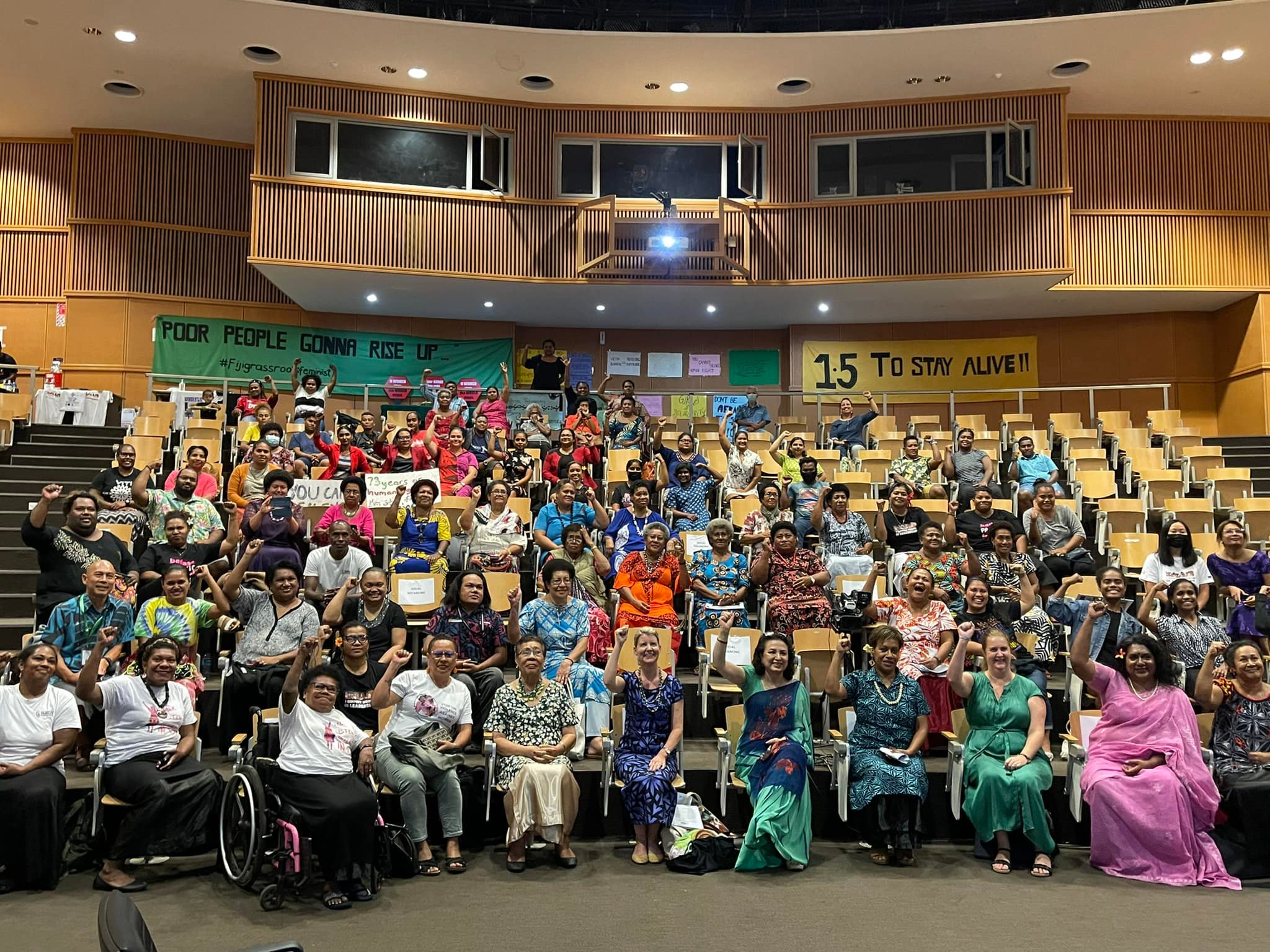For the first time, two global experts and members of the Committee on the Convention of the Elimination of Discrimination against Women (CEDAW) – Natasha Stott Despoja of Australia and Nepal’s Bandana Rana – visited the Pacific region in July.
The two, with 21 other independent experts from around the world, make up the CEDAW Committee that monitors the implementation of CEDAW. The visit was profound for the Pacific community after its establishment in 1982.
What is CEDAW all about?
Coined as the international bill of rights for women, CEDAW is one of the most powerful tools that women’s rights organisations and civil societies can use to advocate to state parties.
CEDAW was adopted in 1979 at the United Nations as one of the most comprehensive UN documents that addressed women’s human rights.
CEDAW is a result of more than 35 years of work of women’s rights organisations, member countries and States.
It was the first critical step towards safeguarding basic human rights for women across the world.
The Convention addresses the socio economic and political rights and wellbeing of women. The Convention currently has 189 states parties, who are required to periodically report under the Convention.
CEDAW in the Pacific Island region
In the Pacific Islands, 13 out of the 14 countries have ratified CEDAW.
It has also been adopted in regional frameworks such as the 2012 Pacific Leaders’ Gender Equality Declaration and the Pacific Platform for Action (2018-2030).
Fiji ratified CEDAW in 1995 and has submitted a parallel report in 2017 through the Fiji NGO Coalition on CEDAW.
Since ratification Fiji has made legislative changes by drafting and adopting a new Family Law Act in 2003 adopting CEDAW principles that encompasses progressive values such as equity, fairness and non-discrimination.
In addition, Fiji has also implemented the Domestic Violence Act which seeks to provide immediate redress to victims of domestic violence.
Why is CEDAW important to know?
CEDAW provides a complete overview of what discrimination looks like for women across the globe, and calls for gender responsive approaches to eradicate all forms of discrimination against women.
The Convention calls for equal access and opportunities in political and public life, the right to vote, and access to healthcare, education, employment, nationality, socioeconomic benefits, marriage and family life.
Additionally, the Convention calls for greater recognition of culture and traditional values that impede women’s reproductive rights in maternity provisions, protection and childcare.
Overall, State parties that have ratified and/or accepted CEDAW are legally bound to take all appropriate measures to put these provisions into national laws, policies, procedures and practice.
CEDAW has a four yearly review State reporting process to measure whether countries have met these legal obligations or not.
What was the CEDAW public forum about?
A public forum to learn more about CEDAW, was organised on July 13, by Fiji Women’s Crisis Centre, Fiji Women’s Rights Movement, femLINKpacific, DIVA for Equality FIJI, Rainbow Pride Foundation 4 LGBTQ Rights and Equality in Fiji, Shifting the Power Coalition and The University of the South Pacific, that saw more than 100 Pacific women representing all walks of life attending the event, and this also included women living in rural/ remote areas who made the effort to travel to Suva to be part of the event. The event was also viewed through zoom and livestreamed on social media platforms for women in the region to attend virtually.
The experts discussed the role of the CEDAW Committee, their personal journeys, how critical NGO/CSO participation is in holding state parties accountable and how important it is to have representation from the Pacific within the committee.
Both acknowledged the immense contribution of civil society and NGOs to the work of the Committee.
We could not do our job the way we do it if it were not for civil society/ NGOs/collectives in the room inputting into our work, in real time, which forms our assessments and judgements.
Committee member Bandana Rana spoke about the importance of Civil Society Organisations to CEDAW.
She stated that “… if it were not for a mechanism like CEDAW because it has a UN publication, it is an international law and if it weren’t for civil society consistently and persistently lobbying and pointing the gaps on the basis of the recommendations provided to the government, the government would not be listening very seriously, at least you have a basis, a foundation to lobby and put your advocacy points across and to be heard…”.
It was such a great opportunity for the committee members to interact with everyone from the Pacific Island region, and to engage in dialogue over our concerns, and as well as for the committee members to share information on the work it does.
Some of the questions posed to the committee members included discussions on very low levels of women’s political leadership in the region versus the very high rates of violence experienced by women and girls.
Participants also talked about how the international community sometimes do not adequately know about indigenous women’s groups in Fiji such as the Soqosoqo Vaka Marama (SSV) which is the oldest women’s group in Fiji.
Grassroots organisations talked about loss and damage and how the conversation needs to shift to structural issues.
A young woman also raised the issue of Pacific Island Countries encouraging a culture of silence when it comes to speaking out about sexual violence, and how CEDAW can work towards changing mindsets and attitudes.
Committee members Natasha Stott Despoja and Bandana Rana joined women from different parts of Fiji and the Pacific Island region to talk about intersecting issues at the University of the South Pacific’s (USP) Japan ICT Centre.
The CEDAW experts were in the region upon the invitation from the Secretariat of the Pacific Community — Human Rights Social Development and UN Women Pacific Multi-Country Office for a week long learning event from July 11 to 15 2022.
• The views expressed are the author’s and is not necessarily shared by this newspaper


